Don't wanna be here? Send us removal request.
Text
COPD or COVID? How to Tell the Difference This Monsoon
Monsoon brings relief, but also a spike in respiratory illnesses. If you're experiencing cough, breathlessness, or fatigue, it can be challenging to determine whether it's a COPD flare-up or COVID-19.
Both conditions can look alike, especially during this damp season when infections and allergens are common. But the causes and treatments are very different, making a timely diagnosis crucial.
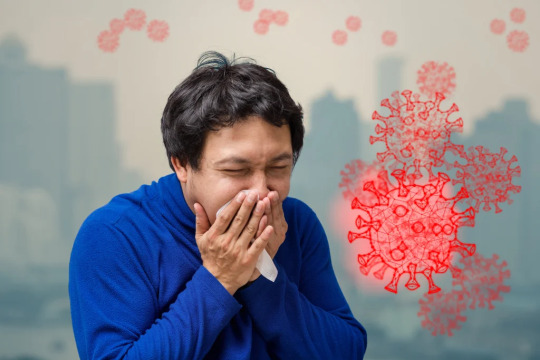
COPD and Monsoon Challenges
COPD (Chronic Obstructive Pulmonary Disease) is a long-term lung disease caused by exposure to pollutants like tobacco smoke, dust, or chemicals. It includes chronic bronchitis and emphysema and results in narrowed airways.
During monsoon, COPD symptoms can worsen. Humidity makes breathing harder, mould and dust mites cause airway inflammation, and poor ventilation increases exposure to irritants. Patients often require ongoing management through the use of inhalers, nebulization, or oxygen therapy. If your symptoms escalate, consult a pulmonologist immediately for evaluation and care.
Understanding COVID-19
COVID-19, caused by the SARS-CoV-2 virus, continues to spread in newer variants. While some may be milder, they still pose a risk, especially for those with chronic lung conditions like COPD. COVID symptoms usually begin suddenly. A dry cough, high fever, fatigue, or drop in oxygen levels are common, along with a loss of smell or taste. Because it’s contagious, early COVID testing is key to timely treatment and isolation.
When to See a Doctor
Seek medical help if you notice worsening breathlessness, chest tightness, extreme fatigue, or reduced SpO₂ levels. If you also experience fever, sore throat, or loss of taste or smell, don’t delay COVID testing.
At Aadicura Superspeciality Hospital, expert pulm9onologists in Vadodara offer accurate diagnosis and care. We provide RT-PCR and antigen COVID testing, along with chest X-rays, CT scans, and spirometry.
COPD vs COVID Treatment
COPD treatment focuses on long-term symptom control with inhalers, nebulisers, steroids, and oxygen therapy. COVID management may involve antivirals, oxygen monitoring, and hospital care if severe. Aadicura’s infection-safe respiratory OPD ensures hygienic, specialised care for both conditions.
Stay Safe This Monsoon
Wear a mask in humid or crowded areas. Avoid smoke and pollutants. Stay updated on flu and COVID vaccinations. Follow your COPD treatment plan and consult your pulmonologist regularly.
Don’t Take Chances
COPD and COVID-19 may feel similar, but they need different treatments. Guessing about it can delay life-saving care.
Book your consultation at Aadicura Superspeciality Hospital today. With expert diagnosis, specialised care, and trusted COVID testing in Vadodara, we’re here to help you breathe easy this monsoon.
0 notes
Text
COVID-19 Resurgence: Expert Pulmonology Care at Aadicura, Vadodara
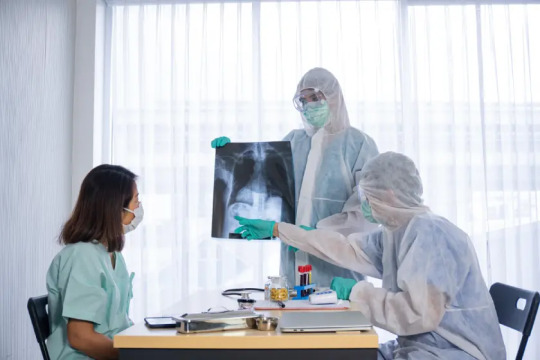
Learn how Aadicura's pulmonology team in Vadodara is prepared to handle the resurgence of COVID-19 with advanced respiratory care, 24×7 emergency support, and post-COVID recovery programs.
0 notes
Text
Prostate Cancer Care at Aadicura: Comprehensive Treatment in Vadodara, Gujarat
Prostate cancer is one of the most common cancers affecting men, especially those over 50. While many cases grow slowly, others can progress rapidly. Early detection, expert treatment, and compassionate care are vital. At Aadicura Superspeciality Hospital, Vadodara, we offer a comprehensive, multidisciplinary approach to prostate cancer, ensuring every patient receives personalised and evidence-based treatment.
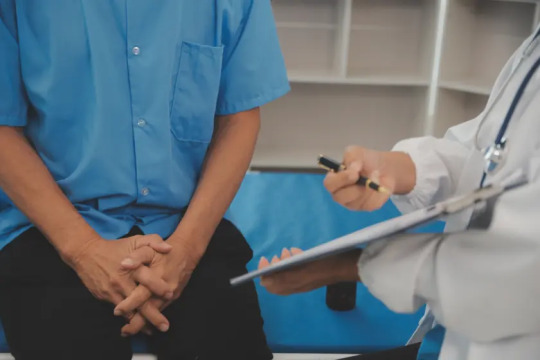
Understanding Prostate Cancer
Prostate cancer begins in the prostate gland, part of the male reproductive system. Although many prostate cancers are slow-growing, some can be aggressive and may spread without early intervention. Recognising early warning signs can make a critical difference.
Common symptoms include:
Difficulty urinating
Frequent urge to urinate, particularly at night
Blood in urine or semen
Painful ejaculation or pelvic discomfort
If you notice any of these symptoms, consulting an experienced urologist promptly is key to early diagnosis and better outcomes.
Why Choose Aadicura?
Aadicura is regarded as one of the leading centres for prostate cancer treatment in Gujarat. Patients choose us for:
Highly experienced urologists and oncologists
Accurate diagnosis using PSA tests, MRI scans, and targeted prostate biopsies
Personalised treatment plans based on individual risk and staging
Strong clinical outcomes and patient-centred care
Our medical team includes some of the best urologists in Vadodara, supported by oncology-trained nurses, dietitians, pain specialists, and counsellors. Each member plays a vital role in delivering holistic care.
Treatment Options Available
Our treatment strategy depends on the cancer’s stage and the patient’s overall health. Options include:
Active Surveillance: For low-risk, localised cancers
Surgical Treatment: Including minimally invasive laparoscopic prostatectomy
Radiotherapy: Targeted radiation to shrink or destroy cancer cells
Hormone Therapy: To slow or stop cancer growth
Chemotherapy and Immunotherapy: For advanced or resistant cases
Every plan is designed to balance effectiveness with patient comfort and long-term well-being.
Support Beyond Treatment
Cancer treatment extends beyond clinical procedures. At Aadicura, we provide essential support services to enhance physical and emotional resilience:
One-to-one counselling for patients and families
Nutritional guidance tailored for cancer recovery
Pain management and palliative care for advanced cases
Regular support group meetings and patient education
We focus on healing the whole person, not just treating the illness.
Accessibility and Patient Support
Whether you are based in Vadodara or visiting from elsewhere in Gujarat or India, our team ensures a smooth journey from consultation to recovery:
Easy OPD appointment booking via phone or online
Dedicated oncology and urology OPDs
Help with accommodation and local travel
Insurance support with multiple cashless tie-ups
We are committed to making quality cancer care accessible and stress-free for every patient.
Take Charge of Your Health
Prostate cancer, when detected early, is highly treatable. At Aadicura Hospital Vadodara, our advanced technology, skilled specialists, and compassionate approach ensure that patients receive the best possible care right here in Gujarat.
Book your consultation today and take the first step towards confident, expert-guided cancer care.
0 notes
Text
COVID-19 Resurgence and Pulmonology Care in Vadodara
As we step into 2025, Gujarat, particularly Vadodara, is seeing a renewed surge in COVID-19 cases. While previous infection waves and vaccination efforts have offered a degree of protection, emerging variants are triggering fresh symptoms, hospital visits, and rising concern among citizens. At such a time, understanding when to seek help and who to consult becomes critical. Aadicura Superspeciality Hospital, Vadodara, is at the forefront of COVID and post-COVID care, led by a highly specialised pulmonology team.
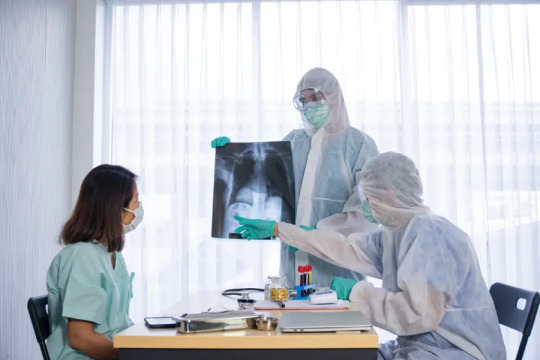
COVID-19 Symptoms Making a Comeback
The recent wave has seen a shift in presentation. Current symptoms include:
High-grade fever
Shortness of breath, especially among elderly patients
Prolonged fatigue and generalised weakness
These signs should not be ignored. Early medical attention can prevent worsening of the condition and reduce the risk of complications. Don’t wait until symptoms escalate; act promptly for a safer recovery.
Why Pulmonology is Crucial Now
Pulmonologists are lung specialists who play a vital role in both active COVID-19 management and long-term respiratory recovery. Beyond the acute phase, COVID-19 can leave lasting effects on lung function, including:
Lung fibrosis
Persistent low oxygen saturation
Post-COVID asthma and breathlessness
If you’re struggling with symptoms that linger beyond 10-14 days, especially those affecting your breathing, it’s time to consult a pulmonologist.
Signs You Need a Lung Specialist
Consider seeing a pulmonology expert if:
Your oxygen saturation falls below 94%
You experience an ongoing cough or breathlessness
There is tightness in the chest or audible wheezing
Fatigue lasts beyond two weeks post-infection
Aadicura’s Pulmonology Expertise
At Aadicura Superspeciality Hospital, our pulmonology department is led by Dr Hiren Parikh and Dr Hardik Shah, renowned lung specialists with vast experience in handling COVID and post-COVID complications. We offer:
High-Resolution CT (HRCT) scans for detailed lung imaging
Pulmonary Function Tests (PFTs)
24/7 oxygen therapy and ICU care
Dedicated COVID treatment and isolation wards
Whether you’re facing active infection or recovering from previous illness, our experts provide tailored care focused on restoring lung health and quality of life.
When to Seek Immediate Help
Consult a COVID specialist immediately if you experience:
Cough lasting more than 10 days
Difficulty in breathing or chest discomfort
Drop in oxygen levels below 94%
General worsening of respiratory function
Mild symptoms can often be managed at home with monitoring, hydration, and rest. However, moderate to severe symptoms warrant hospital assessment without delay.
COVID-Safe Environment at Aadicura
Your safety remains our top priority. We maintain strict infection control protocols, including:
HEPA air filtration systems
PPE for all clinical staff and visitors
Rapid on-site COVID testing
Separate isolation care entry and treatment areas
Our hospital is designed to deliver world-class care in a fully protected environment.
Book Your Consultation
Don’t ignore signs of COVID-19 or post-infection complications. Early intervention could prevent lasting damage. To consult our pulmonologists or book a teleconsultation, visit www.aadicura.com or call +91 89805 53311 today.
0 notes
Text
Understanding the Genetic Factors in Urological Cancers
Genetics can significantly influence the risk of developing certain cancers, including those affecting the urinary system. Urological cancers, such as prostate, kidney, and bladder cancer, are often thought to be the result of age or lifestyle, but for many patients, hereditary genetic factors play an equally crucial role. At Aadicura Superspeciality Hospital in Vadodara, we combine genetic insights with advanced clinical care to provide patients with a clearer understanding of their risk and a personalised path forward.
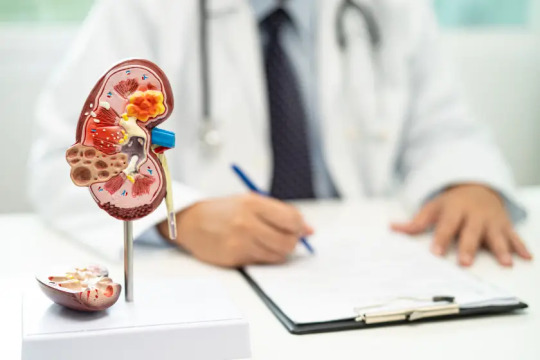
What Are Genetic Factors?
Genetic factors refer to inherited mutations or alterations in an individual’s DNA that can predispose them to specific cancers. While these mutations don’t always cause cancer directly, they can increase vulnerability, especially when combined with external influences such as smoking, obesity, or chemical exposure. In urological cancers, genes like BRCA1, BRCA2, HOXB13, and VHL are commonly linked to elevated risk, especially for prostate and kidney cancers.
Urological Cancers with Known Genetic Links
Prostate Cancer:Inherited mutations, particularly in BRCA2 and HOXB13, can increase a man’s risk of developing prostate cancer, especially if diagnosed under the age of 55. Having a first-degree relative with prostate cancer doubles your own risk.
Kidney Cancer:Conditions like von Hippel-Lindau (VHL) disease or Hereditary Papillary Renal Carcinoma (HPRC) are strongly genetic. Patients with these inherited conditions may also be prone to other tumours and require close monitoring.
Bladder Cancer:Though less commonly inherited, bladder cancer can still have genetic components. Specific inherited syndromes may, when combined with environmental exposures, raise a person’s risk.
The Importance of Family History
Family history remains one of the most important indicators of genetic risk. If you have a close relative, such as a parent or sibling, diagnosed with prostate or kidney cancer, especially at a young age, your risk is significantly increased. Recognising this early is vital for timely intervention.
Genetic Testing and Counselling
At Aadicura, we offer tailored genetic testing and counselling services for individuals at risk of urological cancers. Our approach includes:
Pre-test genetic counselling to evaluate personal and family history
Targeted genetic panels for urological conditions
Post-test sessions to explain results and suggest next steps
These services help patients and their families gain clarity about inherited risks and potential preventive strategies.
Impact on Treatment and Management
Genetic insights now guide more than just risk prediction; they influence treatment too. For example:
Prostate cancer patients with BRCA mutations may respond better to PARP inhibitors, a form of targeted therapy.
Inherited kidney cancers may require more frequent scans or different surgical approaches.
Understanding your genetic background ensures more personalised, effective care.
Preventive Care for High-Risk Groups
For individuals with a strong genetic predisposition, Aadicura recommends:
Regular screenings such as PSA tests or abdominal ultrasounds
Lifestyle changes, including smoking cessation, healthy weight management, and physical activity
Ongoing specialist follow-up for early detection
Our Urology Department is staffed by experienced urologists and supported by genetic counsellors. With access to state-of-the-art diagnostics, minimally invasive surgery, and individualised treatment planning, we provide comprehensive care for prostate, kidney, and bladder cancers.To book a consultation, visit aadicura.com or call +91 89805 53311.
0 notes
Text
Thyroid Disorders Explained – Hypothyroidism & Hyperthyroidism Awareness
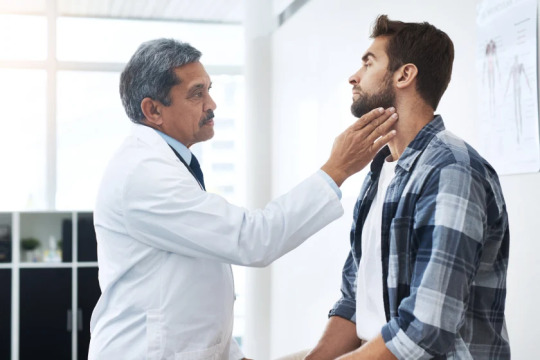
Explore the difference between hypothyroidism and hyperthyroidism through this educational visual by Aadicura Hospital. Understand thyroid disorders, symptoms, and treatments to stay informed and healthy.
0 notes
Text
Comprehensive Guide: Knee Replacement Surgery & Recovery
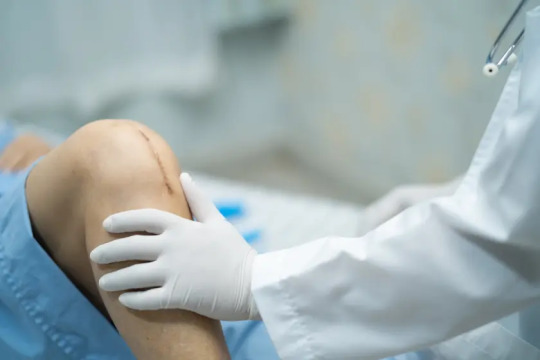
Discover Aadicura Hospital’s comprehensive guide to knee replacement surgery. Learn about procedures, recovery timelines, physiotherapy tips, and how our expert orthopedic team ensures optimal outcomes in Vadodara.
0 notes
Text
Thyroid Disorders Explained: Hypothyroidism and Hyperthyroidism
The human body depends on a precise balance of hormones to function smoothly. These hormones, produced by the endocrine glands, act as messengers, regulating metabolism, growth, energy and mood. One of the most important of these glands is the thyroid, located in the front of the neck.
At Aadicura Superspeciality Hospital Vadodara, our experienced endocrinologists in Vadodara provide expert care for thyroid-related conditions. Among the most common disorders are hypothyroidism and hyperthyroidism. Understanding these two can help patients seek the right treatment early and manage their health with confidence.
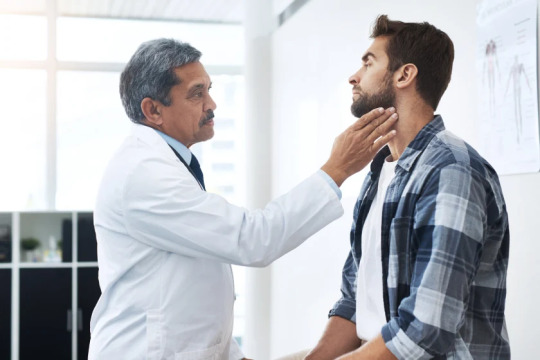
What Does the Thyroid Do?
The thyroid gland releases hormones that control how fast or slow your body uses energy. It influences your heart rate, digestion, body temperature and mental alertness. When the gland produces too much or too little hormone, it leads to disorders that can affect your overall well-being.
There are several causes for thyroid problems, including autoimmune conditions like Hashimoto’s thyroiditis and Graves’ disease, iodine deficiency, certain medications or inflammation of the gland. Genetics may also play a role.
Hypothyroidism: When the Thyroid Slows Down
Hypothyroidism occurs when the thyroid gland does not produce enough hormones. It can make the body feel slow and tired. Common symptoms include fatigue and sluggishness, weight gain, dry skin and hair loss, constipation, cold intolerance, depression or low mood and menstrual irregularities.
While thyroid disorder symptoms in women may include fertility issues and heavy periods, symptoms for thyroid in men often go undiagnosed. These may involve low energy, poor concentration or reduced libido.
Hypothyroidism is typically diagnosed through blood tests measuring thyroid-stimulating hormone (TSH) and free T4 levels. At Aadicura Hospital Vadodara, our thyroid specialists in Vadodara ensure accurate testing and initiate appropriate hormone replacement therapy when needed.
Hyperthyroidism: When the Thyroid Speeds Up
Hyperthyroidism is the result of the thyroid producing too much hormone. This condition speeds up metabolism and may lead to unexplained weight loss, fast or irregular heartbeat, nervousness and anxiety, heat intolerance, tremors, insomnia and frequent bowel movements.
The most common cause is Graves’ disease, an autoimmune condition. Treatment at Aadicura Superspeciality Hospital in Vadodara includes anti-thyroid medications, radioactive iodine therapy or surgery, depending on the case.
When to See a Thyroid Specialist
If you notice symptoms such as persistent fatigue, mood changes, weight fluctuations or changes in your menstrual cycle, it may be time for a thyroid consultation. Early diagnosis is key to managing these conditions and avoiding long-term complications.
At Aadicura Hospital Vadodara, one of the top 10 multispeciality hospitals in Vadodara Gujarat, we offer personalised care backed by advanced diagnostics. Our team also includes a paediatric endocrinologist in Vadodara to assess thyroid issues in children.
Living with Thyroid Disorders
With the right treatment and regular follow-ups, thyroid disorders can be well managed. Lifestyle modifications, balanced nutrition and adherence to medication are vital. While there is no guaranteed prevention for thyroid disease, early detection and consistent care make a significant difference.
Whether you are dealing with a known thyroid condition or are concerned about new symptoms, the expert team at Aadicura Superspeciality Hospital Vadodara is here to help. We are committed to providing holistic, compassionate care in a modern, patient-friendly environment.
0 notes
Text
Top 10 Signs You Need to See a Vascular Surgeon
Understanding What Is Vascular Health
Vascular health refers to the condition of your blood vessels-arteries, veins and lymphatics that carry oxygen and nutrients throughout your body. When circulation is restricted due to blockages, narrowing, or valve failure, it can result in pain, swelling, wounds and even life-threatening complications. Despite its importance, vascular care often gets overlooked until problems escalate. Knowing when to see a vascular doctor can help you address these issues early and avoid long-term damage.
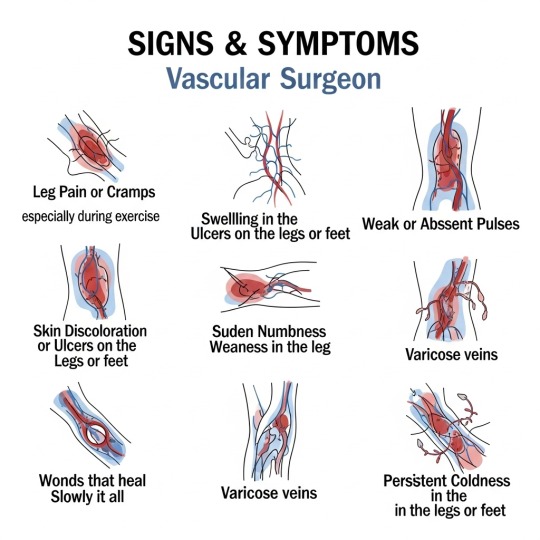
When Everyday Symptoms Could Mean Something More
Many people live with leg pain while walking, assuming it's due to age or fatigue. But recurring pain that eases with rest may point to Peripheral Artery Disease (PAD), where narrowed arteries reduce blood flow to the limbs. This can worsen over time, putting your legs, and your life, at risk. At Aadicura Superspeciality Hospital Vadodara, our vascular specialists diagnose and treat PAD using minimally invasive procedures that restore circulation and mobility.
Chronic Leg Swelling: More Than Just Discomfort
Chronic swelling in the legs should not be dismissed. One of the most common chronic leg swelling causes is venous insufficiency, where vein valves fail to return blood properly to the heart. Over time, this leads to discolouration, thickened skin and painful ulcers. Our team at Aadicura treats these issues with vein therapies, compression protocols and long-term care plans tailored to each patient.
Wounds That Won’t Heal Deserve Attention
Non-healing wounds or ulcers on the legs and feet are major warning signs of vascular disease, particularly in people with diabetes. Poor circulation limits the body’s ability to heal and increases the risk of infection. A timely vascular consultation can identify blockages and initiate treatment such as angioplasty, wound care hyperbaric therapy or advanced healing methods like VAC therapy and dermal substitutes helping avoid more severe complications like limb loss.
When Varicose Veins Are More Than Cosmetic
While many think of varicose veins as a cosmetic concern, painful or bulging veins may be symptoms of deeper vein disease. Skin irritation, heaviness and swelling should not be ignored. Our vascular surgeons offer advanced treatments such as laser ablation, and venaseal (Glue therapy) sclerotherapy to resolve discomfort and restore healthy circulation.
Prevention Starts with Awareness
Even if you feel fine, certain risk factors warrant proactive care. Diabetes, high blood pressure, smoking and a family history of vascular disease all increase your likelihood of developing problems later. Regular screenings with a vascular specialist help detect hidden issues and start preventative treatments early.
Consult the Best Vascular Surgeon in Vadodara
At Aadicura Multispeciality Hospital in Vadodara, we provide world-class vascular care led by some of the best vascular surgeons in the region. Whether you’re experiencing symptoms or have existing risk factors, don’t wait for a crisis. A vascular consultation can make all the difference in maintaining your mobility, health and quality of life.
0 notes
Text
The Complete Guide to Total Hip Replacement
Persistent hip pain, restricted movement or reduced quality of life can make everyday tasks difficult. When these symptoms become part of your routine, it may be time to consider hip joint replacement surgery. A well-executed hip operation can restore mobility, independence and comfort.
At Aadicura Superspeciality Hospital Vadodara, we combine advanced surgical techniques, compassionate care and modern infrastructure to support your recovery. Whether you are searching for a hospital near me or the top hospital in Vadodara, your journey begins here. With specialists who genuinely care.

What Is Hip Replacement Surgery?
Total Hip Replacement (THR) involves replacing the damaged ball and socket of the hip joint with artificial implants. It is commonly advised for patients with osteoarthritis, rheumatoid arthritis, avascular necrosis, hip fractures and chronic joint pain.
At Aadicura Hospital Vadodara, this procedure is performed by experienced orthopaedic surgeons Dr Vivek Parikh and Dr Chirag Patel, whose patient-first approach ensures consistent surgical success and trust.
Preparing for the Procedure
Before surgery, you’ll undergo a clinical evaluation, imaging and blood tests. Based on your condition, our team may recommend optimising existing health conditions, adjusting medications, losing weight, quitting smoking and preparing your home for recovery.
As a multi-speciality hospital in Vadodara, Aadicura offers diagnostics, pre-op counselling and physiotherapy all under one roof, ensuring convenience and continuity.
What to Expect After Surgery
Recovery begins shortly after the hip operation. Most patients begin walking with support within 24 to 48 hours, guided by our expert physiotherapists.
Your post-operative care includes personalised pain management, continuous nursing supervision, structured rehabilitation and comfortable, healing-focused rooms.
With a typical stay of three to five days, your recovery is closely monitored by a skilled multidisciplinary team.
How Soon Can You Walk?
Many patients begin walking with assistance within one or two days. With rehabilitation, most walk unaided in a few weeks. Our physiotherapy plans are created in consultation with your surgeon to suit your pace and lifestyle.
Are There Any Risks?
Like all surgeries, hip joint replacement carries some risks. Common complications include infection, blood clots, joint dislocation, nerve injury and implant wear or loosening.
At Aadicura Superspeciality Hospital, these risks are managed using international safety protocols and precision surgical environments, ensuring the highest standard of care.
Rehabilitation After Hip Replacement
Recovery continues well beyond discharge. Our team supports you through guided physiotherapy, mobility training, follow-up consultations and lifestyle and home care advice.
Your progress is closely monitored, with doctors remaining involved at each stage to ensure a strong and sustainable recovery.
Precautions to Follow
To protect your new joint, we advise avoiding bending beyond 90 degrees, not crossing your legs when sitting or sleeping, using chairs and beds with proper support, sticking to your rehab schedule and attending all follow-up visits.
These habits prevent complications and extend the life of the implant.
Why Choose Aadicura?
Aadicura Superspeciality Hospital Vadodara is a leader in orthopaedic care, known for its expert surgeons, modern infrastructure and patient-first philosophy. As one of the top 10 multispeciality hospitals in Vadodara, we offer doctor-led care, transparent communication, comfortable recovery spaces and ethical, results-driven treatment.
Whether your search began with the best hospital in Baroda or hospital near me, your journey toward recovery is in expert hands at Aadicura.
Book Your Consultation Today
Our orthopaedic team specialises in hip replacement, arthroscopy and complex joint care. Experience personalised treatment, compassionate support and modern infrastructure at Aadicura Superspeciality Hospital, proudly recognised among the best hospitals in Vadodara Gujarat.
0 notes
Text
Understanding Common Urological Conditions: A Comprehensive Guide
Urological diseases affect millions worldwide, yet many people delay seeking help due to discomfort or stigma. These conditions impact the urinary system, including the kidneys, bladder, urethra and associated structures, often disrupting daily life. Whether you're facing urinary problems in men or complex kidney stones in women, early diagnosis and expert care can make all the difference.
At Aadicura Superspeciality Hospital in Vadodara, we provide comprehensive urology care with advanced diagnostics, personalised treatment, and compassionate guidance from experienced specialists.
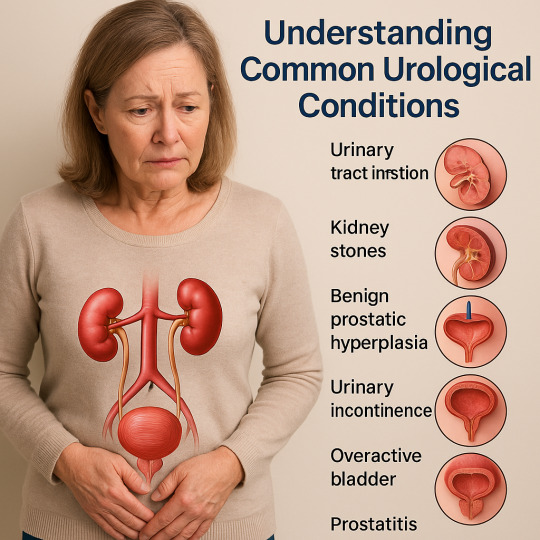
Recognising the Signs: When Urology Problems Disrupt Life
Urology problems can present in various forms like pain during urination, frequent infections, incontinence, sexual dysfunction, or visible blood in urine. Men may experience issues linked to prostate enlargement or erectile dysfunction, while women often report recurring UTIs or bladder control concerns.
These signs should never be ignored. What starts as minor discomfort can progress into serious urological diseases if left untreated. Our hospital in Vadodara offers precise evaluation and treatment for both common and complex cases.
Kidney Stones and Their Gender-Specific Challenges
Kidney stones are one of the most painful yet treatable urology conditions. These mineral deposits form in the kidneys and can obstruct the urinary tract. At Aadicura, we see many patients with kidney stones in women being misdiagnosed due to overlapping symptoms with gynaecological disorders.
Our team uses advanced imaging and minimally invasive procedures like laser lithotripsy to ensure accurate diagnosis and prompt relief. With our focus on both male and female urology challenges, we help patients return to daily life without discomfort or delay.
Male Urology Problems: From Prostate to Performance
Male urology problems such as Benign Prostatic Hyperplasia (BPH) and erectile dysfunction are common but often left untreated due to hesitation. BPH can make urination difficult and frequent, especially at night. Erectile dysfunction, on the other hand, may arise from vascular, hormonal, or psychological causes.
At Aadicura Superspeciality Hospital in Vadodara, we address these concerns with sensitivity and medical precision. Our treatments range from oral medication to advanced therapies including minimally invasive procedures and shockwave therapy, all tailored to each individual’s health profile.
Why Aadicura is a Trusted Name in Urology Care
As a leading superspeciality hospital in Vadodara, Aadicura offers a dedicated urology department led by experienced surgeons trained in robotic, laparoscopic and laser interventions. From treating urinary problems in men to managing complex kidney stones in women, our focus is on holistic healing.
We combine the power of medical innovation with personal care, ensuring that every patient feels respected, informed and confident in their treatment journey.
Take the First Step Towards Better Urological Health
If you’ve been dealing with symptoms of kidney stones, male urology problems, or other urinary concerns, don’t wait. Prompt attention not only prevents complications but improves your overall quality of life. Aadicura is here to support you every step of the way.
Book your consultation today and experience why we are considered one of the best hospitals in Vadodara for expert, empathetic urology care.
0 notes
Text
Aadicura Superspeciality Hospital – Putting Patients First with Compassionate Family-Centered Care
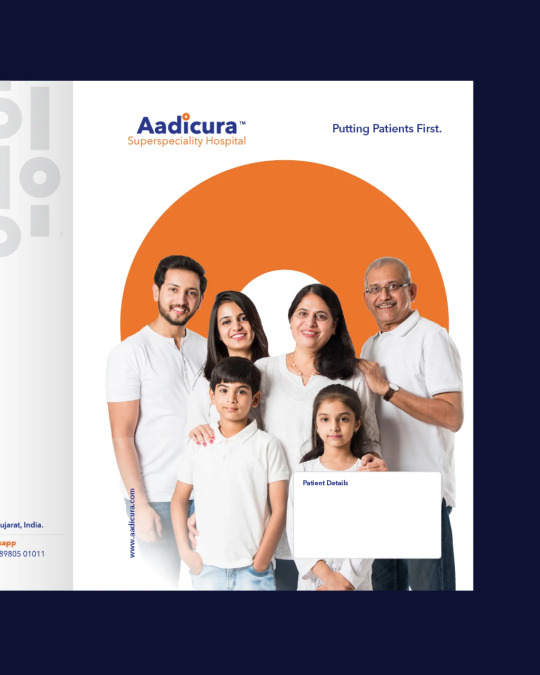
0 notes
Text
Effective Treatment Options for Thyroid Eye Disease | Aadicura
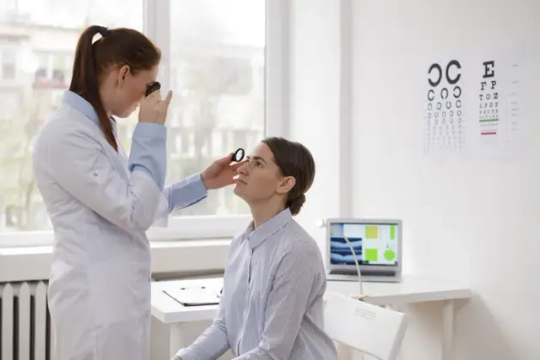
Explore the latest and most effective treatment options for Thyroid Eye Disease (TED) with insights from Aadicura’s expert specialists. Learn about symptoms, diagnosis, and advanced therapies to manage this condition and protect your vision. Ideal for patients seeking reliable and compassionate care.
0 notes
Text
Sleep Disorders: When Poor Sleep Signals a Medical Condition
We often think of sleep as downtime, but in truth, it’s one of the most active and important processes for maintaining our health. Good sleep boosts immunity, supports brain function, balances hormones, and helps the body repair and recharge. On the other hand, chronic sleep problems can signal an underlying medical issue that shouldn’t be ignored.
At Aadicura Hospital, a leading hospital in Vadodara, we treat a wide range of sleep disorders through expert diagnosis and evidence-based care. Let’s explore the most common sleep disorders, their symptoms, and when poor sleep becomes a sign of something more serious.

Common Sleep Disorders & Their Symptoms
1. Insomnia
The most prevalent sleep disorder, insomnia refers to difficulty falling asleep, staying asleep, or waking up too early. It can lead to fatigue, irritability, and reduced concentration. Chronic insomnia can last for weeks or even months and often accompanies stress, anxiety, or other medical conditions.
2. Sleep Apnea
Sleep Apnea occurs when breathing repeatedly stops and starts during sleep, most commonly due to airway obstruction. Symptoms include loud snoring, gasping during sleep, morning headaches, and daytime drowsiness. Left untreated, sleep apnea can lead to heart problems, high blood pressure, and increased risk of stroke.
3. Restless Leg Syndrome (RLS)
RLS causes an irresistible urge to move the legs, usually due to an uncomfortable sensation. It tends to worsen at night and interferes with sleep. People with RLS often experience exhaustion and poor focus during the day.
4. Narcolepsy
Narcolepsy is a neurological condition marked by excessive daytime sleepiness, sudden sleep attacks, and symptoms like sleep paralysis or cataplexy (sudden muscle weakness). It can significantly disrupt daily life and is often misdiagnosed or overlooked.
When Poor Sleep Becomes a Medical Concern
While a few nights of disturbed sleep are common, ongoing sleep problems, like loud snoring, frequent awakenings, or constant fatigue can indicate a deeper issue. If left unchecked, sleep disorders may contribute to depression, reduced productivity, and chronic illnesses such as diabetes or cardiovascular disease.
If you’re constantly tired, fall asleep at inappropriate times, or feel unrefreshed even after a full night's sleep, it's time to seek help.
How to Improve Sleep Naturally
Before resorting to medication, try these proven strategies to improve sleep naturally:
Stick to a regular sleep schedule, even on weekends
Avoid screens at least an hour before bed
Create a calm, dark, and cool sleep environment
Avoid caffeine, alcohol, and heavy meals close to bedtime
Engage in regular physical activity during the day
These steps form the foundation of healthy sleep hygiene and can help manage mild to moderate sleep issues.
Why Choose Aadicura Hospital for Sleep Disorders
At Aadicura Hospital, we understand that sleep is more than rest, it’s recovery. As a premier hospital in Vadodara, our multidisciplinary team includes sleep specialists, neurologists, and pulmonologists who provide comprehensive care tailored to your needs. Whether it’s Sleep Apnea, insomnia, or complex neurological sleep disorders, we’re here to help.
Struggling to sleep well? Let Aadicura Hospital help you reclaim restful nights and brighter days.
📞 Call us or visit www.aadicurahospital.com to book your consultation.
0 notes
Text
Understanding GERD: Symptoms, Causes, and How to Treat It
Introduction
Let’s get real for a moment, acid reflux isn’t just about that occasional post-dinner burn. When it starts showing up regularly, disrupting your sleep, meals, and quality of life, it’s no longer just annoying. It’s a medical condition called Gastroesophageal Reflux Disease (GERD), and ignoring it can be a costly mistake.
What’s frustrating? We've had expert guidelines in place for nearly 30 years, urging doctors to screen long-term GERD sufferers for Barrett’s oesophagus, a change in the lining of the oesophagus that can lead to cancer. Yet, the majority of people who should be screened never are. Some estimates suggest that 70% or more of eligible individuals are overlooked.
That’s a major disconnect between what doctors know and what patients actually hear. So, let’s bridge that gap and get into what GERD really is and what to do about it.

So, What Is GERD Exactly?
GERD stands for Gastroesophageal Reflux Disease, a condition where acid from your stomach keeps backing up into your oesophagus. That acid isn’t supposed to be there, and over time, it causes inflammation and damage.
Think of acid reflux as the symptom and GERD as the condition. If reflux is happening more than twice a week, and especially if it’s persistent over months or years, it's likely GERD. And that’s not something to ignore.
Recognising GERD Symptoms
GERD can show-up in a few different ways. Here are the signs to look for:
Burning in the chest (aka heartburn)
Sour-tasting fluid coming back up (regurgitation)
Feeling like food is stuck or difficult to swallow
Long-term cough or throat irritation
Hoarseness or a change in your voice
Pain in the chest that’s not related to your heart
And yes, these symptoms can absolutely get worse when you lie down, especially at night. Wondering how to sleep better with GERD? We’ve got tips coming up.
What’s Behind GERD?
The root issue is a weak lower oesophageal sphincter (LES), a muscle that normally keeps stomach acid in its place. If it loosens up when it shouldn’t, acid escapes.
A few factors that raise your GERD risk:
Being overweight
Smoking
Pregnancy
Eating late or overeating
Certain medications
Drinking alcohol, caffeine or eating chocolate, spicy or greasy foods
So yes, there are very specific foods to avoid with GERD if you want to feel better.
How Doctors Confirm It’s GERD
A diagnosis often starts with a chat and physical exam. But if your symptoms are severe or long-standing, here’s what doctors might use:
Endoscopy: A camera checks the inside of your oesophagus for damage
pH monitoring: Measures how much acid is coming up
Manometry: Tests how your oesophagus muscles are working
Barium swallow: An X-ray that highlights problem areas
If there’s even a remote chance of Barrett’s oesophagus, screening matters.
Best Ways to Treat GERD
1. Lifestyle Tweaks That Work
A lot of people can improve symptoms by changing daily habits. Start here:
Ditch spicy, acidic, and fatty foods
Cut down on caffeine, carbonated drinks, and alcohol
Eat smaller meals more often
Avoid lying down for 2-3 hours after eating
Prop your bed up 6-8 inches at the head
Lose weight if needed
Stop smoking
That last one is huge. Smoking weakens the LES and makes reflux worse.
2. Medications That Help
When lifestyle changes aren’t cutting it, medications can step in:
Antacids: Short-term relief
H2 blockers: Reduce acid production
Proton Pump Inhibitors (PPIs): Stronger acid blockers, often used long-term
Prokinetics: Helps the stomach empty faster (used less often)
Important note: Long-term medication use should be monitored by a doctor. You need to make sure GERD is properly diagnosed.
3. When Surgery Makes Sense
In severe cases or when medications don’t help, surgery may be an option:
Fundoplication: The top of the stomach is wrapped around the LES to strengthen it
LINX device: A magnetic ring implanted around the LES to keep it closed at the right times
Not everyone needs these, but for the right patient, they can make a major difference.
Long-Term GERD Management
This isn’t a “treat it once and forget it” situation. GERD can lead to serious issues like ulcers, scarring, or cancer if ignored.
So keep up with:
Ongoing check-ups
Consistent treatment
Screenings if symptoms have lasted 5 years or more
Especially if you’re over 50, overweight, or a smoker. That’s the target group for Barrett’s screening.
Why Aadicura Hospital?
We don’t just treat GERD, we tackle the entire patient experience. At Aadicura, we focus on:
Comprehensive diagnosis using advanced tools like high-definition endoscopy
Personalised lifestyle guidance
Long-term medication management
Surgical solutions for severe cases
Plus, we believe educating you about your condition is just as important as the treatment itself. Awareness isn’t optional. It’s essential.
If you’ve been brushing off heartburn for months or even years, it’s time to stop. GERD is not just a nuisance. Left untreated, it can lead to real, lasting damage.
April is Oesophageal Cancer Awareness Month, and it’s the perfect time to get proactive. Ask your doctor about screening. Take action. Don’t wait.
Need help? Aadicura Hospital is here to guide you from start to finish.
Schedule your GERD evaluation today. Your oesophagus will thank you.
0 notes
Text
A Comprehensive Guide to Knee Replacement Surgery
If walking, standing, or climbing stairs has become painful and limiting, you’re not alone. Millions of people worldwide suffer from chronic knee pain, often caused by arthritis or injury and for many, knee replacement surgery is the key to reclaiming their mobility and quality of life.
At Aadicura Hospital, a leading hospital in Vadodara, we specialise in helping patients move past pain through advanced joint replacement solutions. Here’s what you should know if you're considering this life-changing procedure.
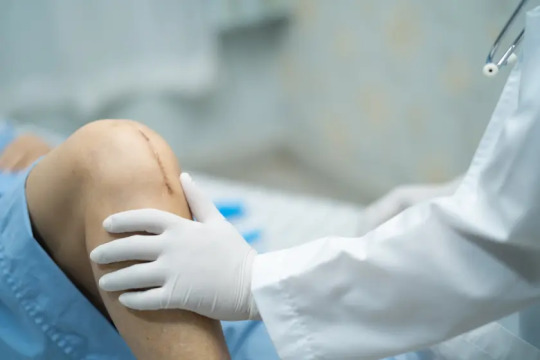
Why is Knee Replacement Surgery Needed?
Knee replacement becomes necessary when the knee joint is damaged to a point where everyday activities are painful or impossible. Common causes include osteoarthritis, rheumatoid arthritis, or post-injury degeneration. If medications, physiotherapy, and injections no longer provide relief, surgery might be your next step.
It’s not just about pain relief, knee replacement surgery can restore independence, improve sleep, and allow you to enjoy life again.
Types of Knee Replacement Surgery
There are different procedures depending on the extent of damage:
Total Knee Replacement (TKR): The entire joint is replaced with a prosthetic.
Partial Knee Replacement (PKR): Only the damaged part is replaced, ideal for localized arthritis.
Bilateral Replacement: When both knees need surgery, done simultaneously or in stages.
At Aadicura, our specialists evaluate your condition and suggest the approach best suited to your needs and lifestyle.
Preparing for Surgery
Preparation is key to a smooth experience. Before surgery, our team conducts detailed evaluations, imaging, and blood work. You’ll also meet with anesthesiologists and physiotherapists to discuss pain management and exercises.
Pre-surgery strengthening and personalized planning ensure that you’re both physically and mentally ready.
What Happens During the Surgery?
Knee replacement surgery usually takes 1-2 hours and is performed under anaesthesia. The damaged joint surfaces are removed and replaced with artificial implants made of metal and plastic. At Aadicura Hospital, minimally invasive techniques are used whenever possible, which leads to faster healing and reduced discomfort.
Recovery and Rehabilitation
Recovery begins almost immediately after surgery. With guided knee replacement rehabilitation, most patients start walking within a day, first with assistance, then independently over time.
Knee replacement recovery time varies, but here’s a general timeline:
First 2 weeks: Gentle movement and walking with a walker
Weeks 3-6: Increased mobility and reduced pain
After 6 weeks: Return to routine activities with confidence
Our rehabilitation experts at Aadicura support you through every phase, helping you build strength, flexibility, and confidence.
Expected Results and Long-Term Outlook
With proper care, knee replacement recovery can lead to 90-95% pain reduction and long-lasting results. Most implants last 15-20 years, or even longer with healthy lifestyle habits.
Patients often report improved sleep, better balance, and the joy of returning to everyday activities without hesitation.
Why Choose Aadicura Hospital, Vadodara?
From diagnosis to full recovery, Aadicura Hospital offers comprehensive, compassionate, and cutting-edge orthopedic care. Our success lies in:
Highly experienced orthopedic surgeons
Advanced operation theatres and technology
Personalised recovery and physiotherapy programs
Supportive, transparent care every step of the way
As a trusted hospital in Vadodara, we’re proud to help patients walk into a better tomorrow, literally.
Take the First Step
You don’t have to live with knee pain. With expert guidance, innovative techniques, and complete aftercare, Aadicura Hospital is here to help you move forward, stronger and pain-free.
📞 Book your consultation today 🌐 Visit www.aadicurahospital.com
0 notes
Text
Beat the Heat: Essential Health Tips to Survive the Indian Summer
As the mercury soars across India, summer brings more than just longer days, it ushers in relentless heat waves that can pose serious health risks. With temperatures regularly breaching safe limits, protecting yourself and your loved ones from heat-related illnesses becomes not just advisable but essential.
From dehydration to heatstroke, the dangers are real, but they’re also preventable. This article breaks down everything you need to know, from recognising early warning signs to practical summer health tips and emergency measures you can take. Let’s help you stay safe and cool when the sun turns fierce.

Why Heatwaves Are a Serious Concern
Heat waves occur when temperatures stay abnormally high for prolonged periods, often accompanied by high humidity. During this time, the body struggles to regulate internal temperature, leading to a range of heat-related illnesses such as:
Heat Cramps: Painful muscle spasms, usually due to loss of salt and fluids.
Heat Exhaustion: Marked by fatigue, heavy sweating, and nausea.
Heatstroke: A medical emergency where the body temperature crosses 104°F, often leading to confusion or unconsciousness.
Key Symptoms to Watch Out For: Dizziness, nausea, rapid pulse, excessive or no sweating, and fainting spells. Recognising these signs early can prevent complications.
Top 5 Heatwave Survival Tips
Here’s how you can safeguard yourself:
1. Hydration is Non-Negotiable Drink 8-10 glasses of water a day. Include fresh juices and coconut water, and avoid alcohol or caffeinated drinks. Always carry a bottle with you.
2. Dress for the Weather Opt for light-coloured, breathable cotton clothes. Don’t forget a wide-brimmed hat and sunglasses when stepping out.
3. Avoid the Midday Sun The hours between 12 PM and 4 PM are the harshest. Stay indoors, and if you must go out, seek shade whenever possible.
4. Eat Light, Stay Cool Switch to water-rich foods like watermelon, cucumber, and citrus fruits. Yoghurt, salads, and buttermilk are summer favourites. Avoid oily, spicy meals that add internal heat.
5. Extra Care for Children & Seniors They’re more vulnerable to heat. Ensure they stay indoors, stay hydrated, and dress appropriately. Regularly check in on them.
Emergency First Aid: What You Must Know
Despite precautions, emergencies can happen. Here’s what to do if someone suffers from heatstroke or dehydration:
For Heatstroke: Move them to a cool spot. Remove extra clothing. Use cold compresses around the neck and underarms. Offer sips of water if conscious. Call for medical help immediately.
For Dehydration: Give small sips of water or ORS. Avoid sugary or caffeinated drinks. If dizziness or confusion continues, seek emergency care.
When to Seek Professional Help
If symptoms persist or worsen, don't wait. At Aadicura Hospital, we provide prompt and expert care for all heat-related emergencies.
Why Aadicura?
Advanced Facilities: From IV hydration to critical care units, we’re fully equipped.
Specialised Team: Experienced doctors and paramedics handle everything from heat exhaustion to severe dehydration.
Community Awareness: We actively host health camps and share expert advice to help our community stay safe.
Summer in India can be beautiful, but it can also be brutal. Stay informed, take precautions, and don’t ignore the signs your body gives you. And remember, in any emergency, Aadicura Hospital in Vadodara is always ready to support you with world-class care and compassionate service.
Stay cool. Stay safe.Your health matters, especially when the heat is unforgiving.
0 notes